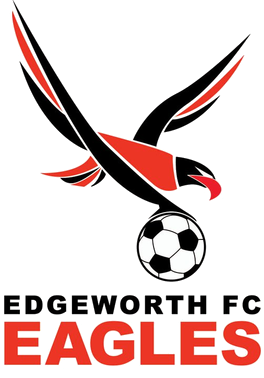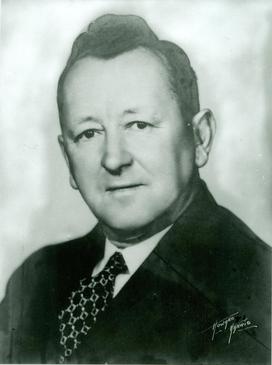Related Research Articles
Wallsend is an electoral district of the Legislative Assembly in the Australian state of New South Wales. It has only ever been represented by a member of the Labor Party and is currently represented by Sonia Hornery.
Newcastle is an electoral district of the Legislative Assembly in the Australian state of New South Wales named after and including Newcastle. It is represented since the 2014 Newcastle by-election by Tim Crakanthorp of the Australian Labor Party.

Australian rules football in New South Wales is the team sport as played and observed in the Australian state. It dates back to the colonial era in 1866 with organised competition being continuous since the 1880s. Today, in several regions of the state, it is moderately popular, including areas near the Victorian and South Australian borders such as the Riverina, Broken Hill, and South Coast. Elsewhere, and particularly in Sydney, Rugby league and Soccer are more popular. These areas form part of an Australian cultural divide described as the Barassi Line. To the east of the line it is known as "AFL" after the elite Australian Football League competition. AFL NSW/ACT is the development body and includes the Australian Capital Territory.

David Watkins was an Australian politician. He was an Australian Labor Party member of the New South Wales Legislative Assembly for Wallsend from 1894 until 1901. At Federation, he was elected to the new Australian House of Representatives as the Labor member for Newcastle and served until his death in 1935. Watkins' death left former Prime Minister Billy Hughes as the only remaining member of the First Parliament still in the House.

Kurri Kurri is a small town in the Hunter Region of New South Wales, Australia, in the Cessnock LGA. At the 2016 census, its population was 6,044. Kurri Kurri is the largest town in a group of towns and hamlets, including Stanford Merthyr, Pelaw Main, Weston, Abermain and Heddon Greta, called Kurri Kurri – Weston by the ABS. Its estimated population was 17,241 at 2016 census.

Reg Date was an Australian soccer player who plied his trade after the Second World War. Date played for Wallsend Football Club and Canterbury-Bankstown. He represented Australia in five full international matches, captaining three times.

The Shire of Erina was a local government area covering the majority of the Central Coast region of New South Wales, Australia. The shire was proclaimed on 7 March 1906 as a result of the passing of the Local Government (Shires) Act 1905 and covered most of the Central Coast region with the exception of the Town of Gosford, which had been incorporated in 1886.

Kenneth George Booth was a New South Wales politician, Treasurer, and Minister of the Crown in the cabinets of Neville Wran and Barrie Unsworth. From 1981 to 1988 he was the Treasurer of New South Wales. He was a member of the New South Wales Legislative Assembly for 28 years from 8 October 1960 until his death on 1 November 1988 for the Labor Party, representing the seats of Kurri Kurri and Wallsend.

John Estell was a politician and coal miner in New South Wales, Australia. He was a member of the New South Wales Parliament for 29 years, including 20 years in the Legislative Assembly. He was a minister in the Holman, Storey and Dooley Labor governments.

Alfred Quill was an Australian soccer player and played for the Australia national team. Often considered one of the best soccer players in New South Wales, he scored 868 goals in all NSW competitions in his 24-year senior career.
William "Podge" Maunder was an Australian soccer player. Maunder is recognised as the player who scored Australia's first international goal.

Edgeworth Football Club is an Australian semi-professional football club based in the suburb of Edgeworth, near Newcastle, New South Wales. The club currently competes in the National Premier Leagues Northern NSW.
Percy Lennard (1900–1975) was a former Australian soccer player.

David Thomas Johnston was an Australian sportsman and local politician.
George Smith was an Australian professional soccer player who played as a forward. He captained the Australia national soccer team in 1933. Often considered the best centre-forward in Australian soccer in the 1930s, he had an average of 2.66 goals per game for Australia and has had many goalscoring records throughout his 17-year career.
Cliff Almond was a former Australian professional soccer player who played as a forward. He was an international player for the Australia national soccer team.
The Shire of Woy Woy was a local government area on the Central Coast region of New South Wales, Australia, centred on the town of Woy Woy. The shire was proclaimed on 1 August 1928 as a result of the proclamation of the separation of the D Riding of Erina Shire and had its council seat at Woy Woy, but covered the majority of the Woy Woy peninsula including Woy Woy Bay, Umina, Blackwall, Kariong, Pearl Beach, and Patonga. Woy Woy Shire was abolished on 1 January 1947 with the reorganisation of local government in the Central Coast region following the end of the Second World War, with the council area amalgamated into Gosford Shire.
The 1889 season was the sixth season of regional competitive association football in Australia. The were two league competitions and two cup competitions fielded by Northern District British Football Association and the South British Football Soccer Association.
Roy McNaughton was an Australian soccer player who played as forward for the Australia national team. He played most of his senior career with Cessnock and switched a variety of Newcastle based clubs including Kurri Kurri, Weston and Aberdare afterwards.
Cecil Williams was an Australian soccer player who played as forward for Cessnock for most of his career and the Australia national team. He played with Leichhardt-Annandale and St George after his time at Cessnock.
References
- ↑ Howe, Andrew (2022). Encyclopedia of Socceroos Centenary Edition, 1922 to 2022. Fair Play Publishing. ISBN 978-1-925914-59-7.
- ↑ "FOOTBALL". Newcastle Morning Herald And Miners' Advocate . No. 15, 744. New South Wales, Australia. 2 April 1927. p. 10. Retrieved 12 June 2023– via National Library of Australia.
- ↑ "SOCCER". Sydney Sportsman . No. 1500. New South Wales, Australia. 20 March 1928. p. 13. Retrieved 12 June 2023– via National Library of Australia.
- ↑ "SOCCER SENSATION". Referee . No. 2146. New South Wales, Australia. 9 May 1928. p. 12. Retrieved 12 June 2023– via National Library of Australia.
- ↑ "FOOTBALL". Newcastle Morning Herald And Miners' Advocate . No. 16, 664. New South Wales, Australia. 14 March 1930. p. 4. Retrieved 12 June 2023– via National Library of Australia.
- ↑ "Strenuous Clashes in Soccer Cup Ties". Truth . No. 2115. New South Wales, Australia. 20 July 1930. p. 6. Retrieved 12 June 2023– via National Library of Australia.
- ↑ "SOCCER SNAPS". Sydney Sportsman . No. 1624. New South Wales, Australia. 5 August 1930. p. 13. Retrieved 12 June 2023– via National Library of Australia.
- ↑ "SOCCER TEST MATCH". Newcastle Morning Herald And Miners' Advocate . No. 14, 487. New South Wales, Australia. 30 June 1924. p. 7. Retrieved 12 June 2023– via National Library of Australia.
- ↑ "GOING ABROAD". The Newcastle Sun . No. 1292. New South Wales, Australia. 17 May 1922. p. 2. Retrieved 12 June 2023– via National Library of Australia.
- ↑ "The Australian National Men's Football Team: Caps And Captains" (PDF). Football Federation Australia . ozfootball.net. Retrieved 23 June 2009.